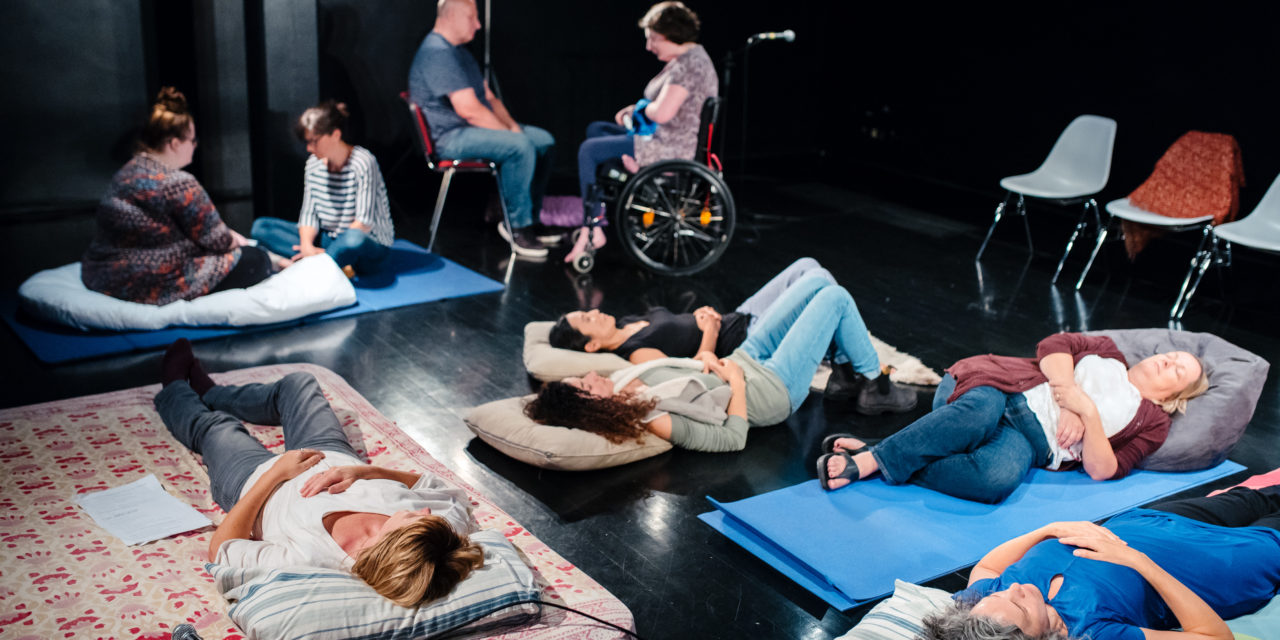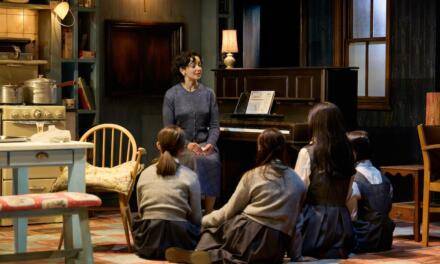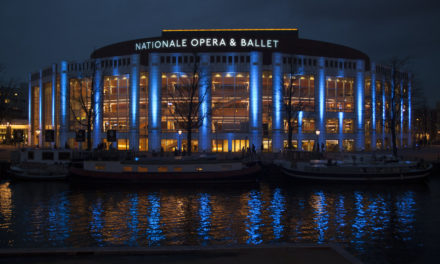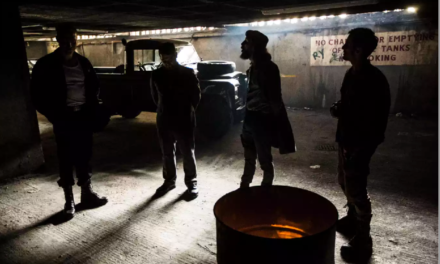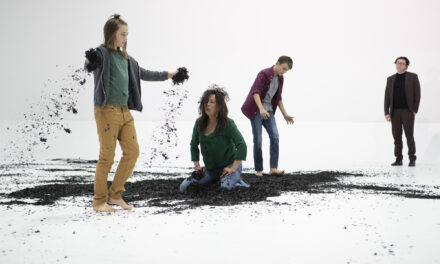What does it take to become a cloudspotter? It may sound a romantic idea, but is a term used by Raquel Meseguer for the thousands of people in the UK living with chronic pain from conditions that require individuals to rest, lying down at frequent intervals.
Meseguer was a successful contemporary dancer, and the other half of dance theatre company Lost Dog, when a slipped disc left her with increasingly debilitating neurological symptoms in 2007. She began thinking about creating performances that explore chronic pain and interrogate the kickback she received for lying down in arts venues and other public spaces.
In 2016, Meseguer triggered a security alert whilst reclining on a bench at Unlimited Festival, Southbank Centre. She felt compelled to make work in response to the incident. If lying down wasn’t understood as an access issue in a disability positive space, then how was the prejudice to be countered? Underlying cultural notions suggest that lying down during the daytime means you must be lazy. As Meseguer puts it: “You’re enacting something very vulnerable and make yourself an easy target for negative responses. It prevents me from being in the world in the way that I’d like to be.”
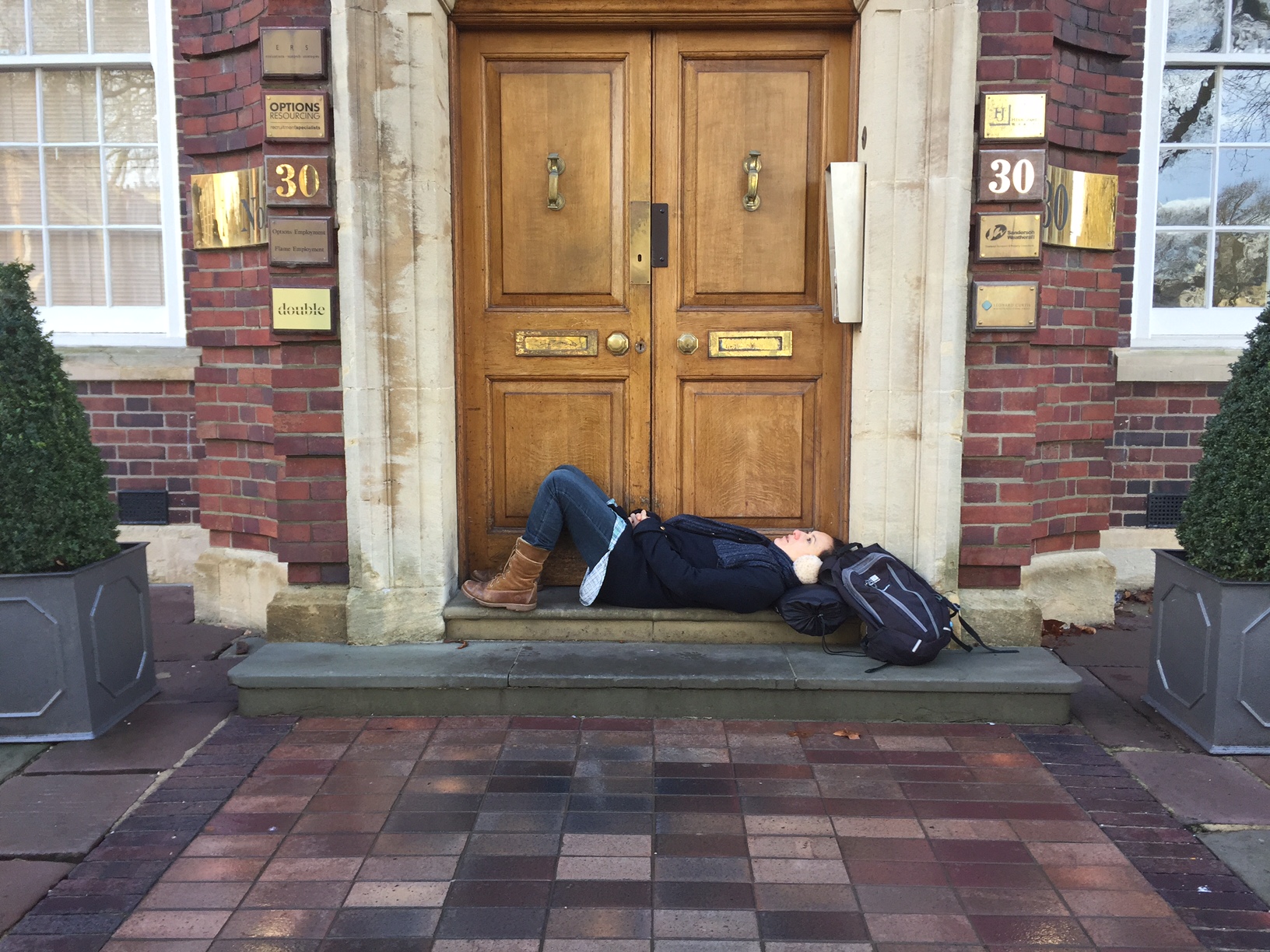
The subversive act of horizontality |Photo Credit Synnøve Fredericks
Working with the Bristol-based Unchartered Collective (made up of creatives, all of whom experience persistent pain), Meseguer sent out a survey to the disability arts community UK-wide. She received 99 responses from individuals with a wide range of impairments, telling their stories of attempting to lie down in public spaces.
Meseguer tells one of the most shocking stories: “One of them I find heartbreaking is somebody who has for many years been lying down on toilet floors. She’s come to view having to lie down amongst the smells and the liquids as her coping mechanism for being out in the world.”
From the breadth of detail in the survey, Meseguer identified a universal need: “The reality is that lots of people police themselves, and some go to extremes to ensure they are not seen to have different needs.” The stories could be summed up by one respondent who said: “The world is simply not designed for me. Or rather I am not designed to be in the world,” confirming Meseguer’s sense of a general cultural prejudice towards “rest” and the idea of not being productive all of the time.
The stories told through the survey form the foundation for A Crash Course in Cloudspotting, an Unlimited R&D commission. The audio-visual installation will consist of two pods next to each other – one for lying down and one for sitting, or for wheelchair users. A score called “Glowing Assembly” has been recorded by Jamie McCarthy to accompany the series of “resting stories” collected through the research and told anonymously by actors.
Lighting will be provided by a light choir – lamps connected to people resting in real-time will create a link to people needing to rest in the moment, to convey the idea that when we lie down we can still contribute. In a symbolic way, it’s about shedding light on an aspect of human behavior which is surrounded by shame. As Meseguer says, “some of my best thinking time is when I’m resting; it’s about valuing rest as a form of contribution.”
Ovalhouse intends for the installation to tour arts venues across the country. South East Dance came on board in Brighton, producing a series of workshops and roundtable events in late 2017. As a result, a host of Brighton venues has shown interest, including Brighton Fringe Festival, Brighton Dome, Fabrica, ONCA, and Depot Cinema. Theatre Bristol, Tobacco Factory, and Trinity Centre in Bristol and National Theatre are also part of the conversation.
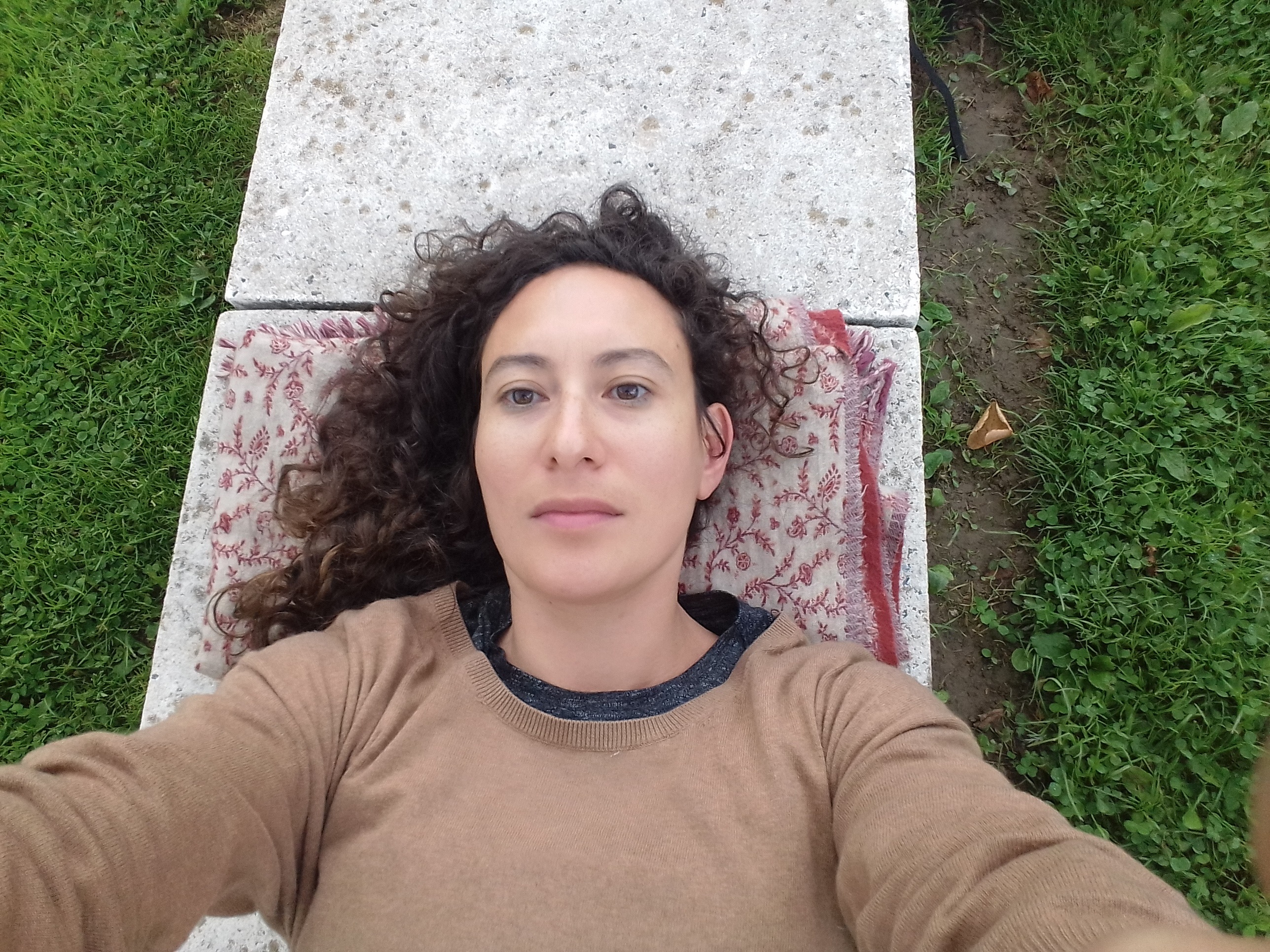
Headshot of Raquel Meseguer |Photo Credits Raquel Meseguer
The idea of re-imagining public space to serve more people and challenging etiquette and modes of behavior has caught the imagination, with BBC Radio 4 Four Thought set to air a program documenting the project. The approach has been to look for playful solutions as to how venues might accommodate people with a requirement to spend time horizontal whilst “resetting” and “recharging.”
One idea that came back from the survey was that the back row has a cultural connotation of being a space where a bit more naughtiness is allowed. So it might be that if you need to stretch you can go in the back row, so you don’t unnecessarily disturb other audience members.
Another idea is that venues’ reception areas could provide a “reserve table” sign to make people aware that someone is lying down with intention and not as a result of being a social nuisance. Meseguer says: “I find that when I’ve the energy to explain to people – ‘do you mind if I lie down, I have a condition,’ things go smoothly. I don’t always have that capacity to communicate clearly with patience and that’s when I hear abusive comments.”
The project hopes to encourage a more fluid use of public spaces that account for peoples’ differences. To that end, Unchartered Collective plans to trial a map of resting spaces in Bristol in 2018. The map will be hosted by Theatre Bristol and participating venues, in the hope that more public spaces will sign up to be a resting venue. Meseguer plans to develop the program through workshops in venues across other cities, to expand the map of resting spaces.
A Crash Course In Cloudspotting has cultural traction because as a society we are coming around to looking at rest again. It’s in the zeitgeist. The last time we looked at rest culturally was just after the First World War, when we were thinking about rest pauses and how people working in factories could be more efficient. Now there is a body of academic research building from work commissioned by universities and organizations, like the Wellcome Trust, that looks in detail at the science of rest. As Meseguer’s work develops, so it will begin to engage with those studies.
“A Crash Course In Cloudspotting (the subversive act of horizontality)” installation is to be on display at Ovalhouse from Monday, January 29 until Saturday, February 10.
A version of this interview was originally published on ArtsProfessional. Reposted with permission. Read the original article.
This post was written by the author in their personal capacity.The opinions expressed in this article are the author’s own and do not reflect the view of The Theatre Times, their staff or collaborators.
This post was written by Colin Hambrook.
The views expressed here belong to the author and do not necessarily reflect our views and opinions.

